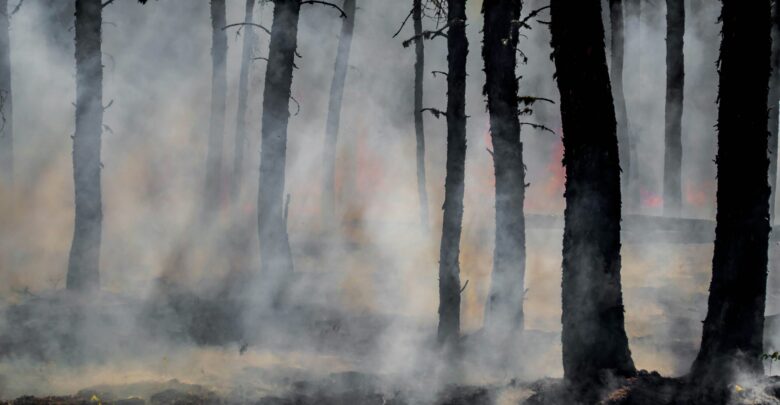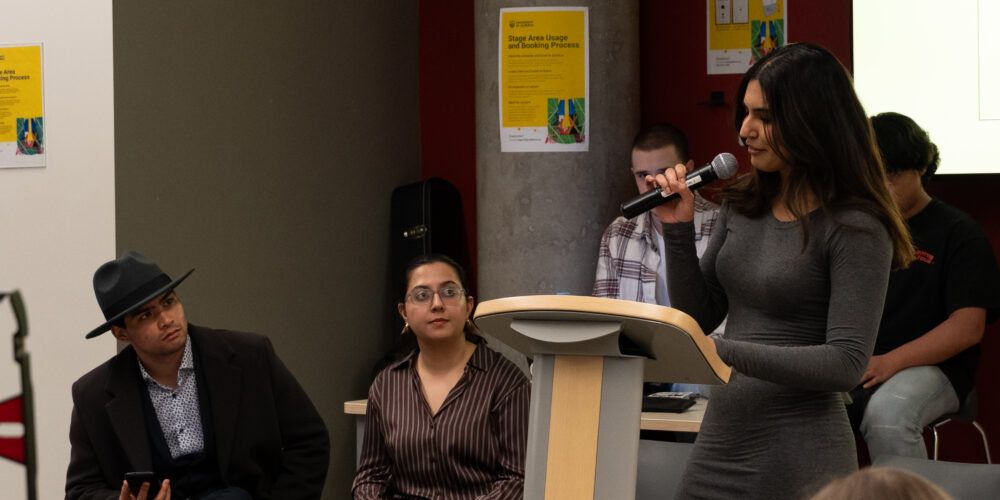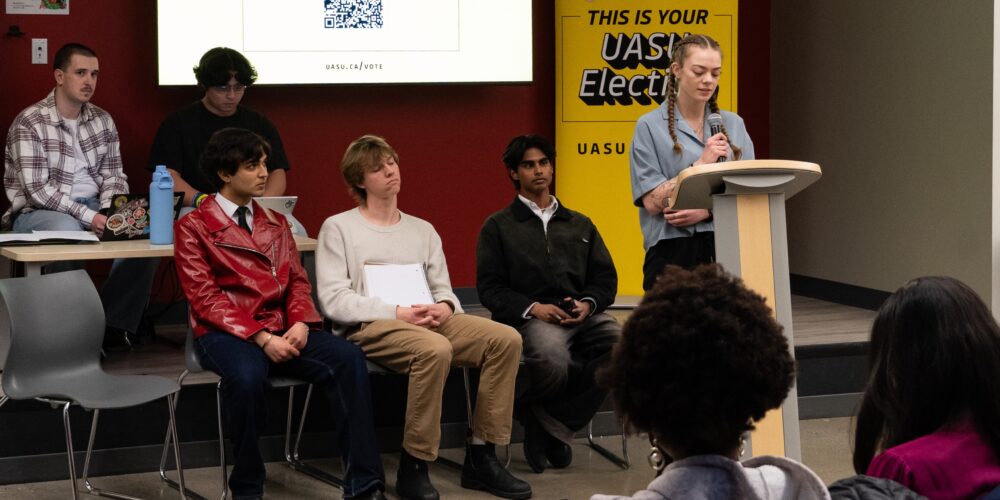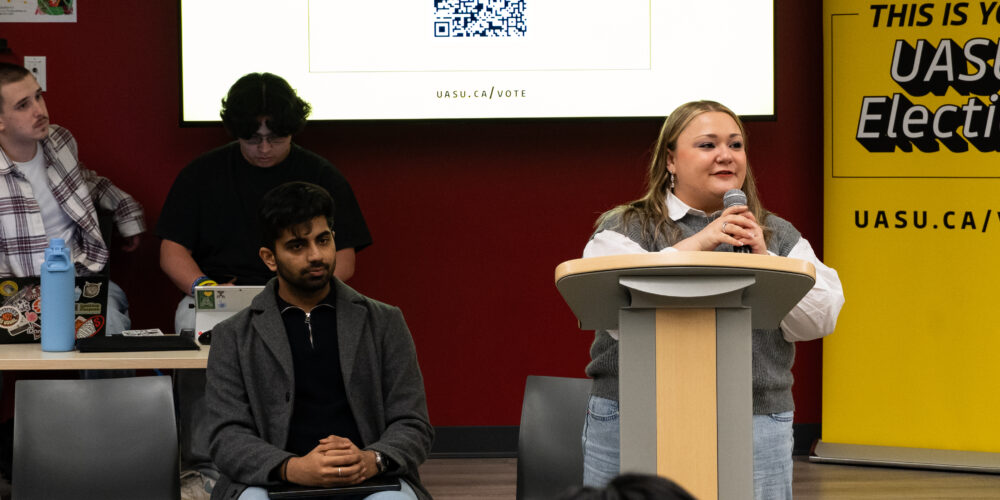Not addressing climate change is costing Albertans, in more ways than one
The Alberta government’s refusal to take preventative measures towards the climate crisis will only lead to worse droughts and wildfires.
 Joanne Francis
Joanne FrancisAccording to climatologist David Phillips, this last winter broke records as the warmest winter in Canadian history. Surely, these temperatures just mean that it takes less time to wipe your windshield and drive to school, right? Not quite.
Rather, this trend of warm winters over the last few years coincides with more intense and damaging wildfire seasons. Currently, the Government of Alberta seems more willing to spend more and more of its budget to fight wildfires than fund long-term solutions. Clearly, Albertans will be paying the costs of climate change either way. The only question is whether we’ll simply address the symptoms of the problem, or the root cause: our emissions.
Without preventative action on climate change, this pattern of warm winters and dry summers will become progressively dangerous and expensive. The provincial government needs to start investing in renewable energy and reducing the use of fossil fuels to help tackle the worsening climate crisis.
This year, Agriculture and Agri-Food Canada has classified southern Alberta as an area of extreme to exceptional drought. This is due to the lack of regular precipitation and higher than normal temperatures. As a result of these dry conditions, municipalities across Alberta are struggling with water shortages. Yet, the province is doing little to prevent these issues from getting worse in coming years.
Alongside the drought, Alberta declared the start of the wildfire season at the end of February, two months earlier than usual. As of May 13, Alberta has seen about 450 wildfires, which is more than last year. Several areas in Alberta have already experienced evacuation orders.
While the government has been funding wildfire response services, its actions will only temporarily mitigate these problems. Funding should go towards tackling the cause of climate change rather than only mitigating the consequences. But the provincial government isn’t doing that. The government isn’t only failing to prevent this situation from getting even worse, but is also failing to protect the security of Albertans.
If we don’t take preventative measures, the province will face growing costs when combating the worsening wildfires. As a matter of fact, Alberta spent about $2.9 billion in response to last year’s wildfires, drought, and the subsequent agricultural disaster. This year, the government has put aside another $2 billion in an emergency fund for wildfire management. The cost will continue to grow as the conditions worsen, unless the government does more to reduce our emissions.
Of course, the United Conservative Party (UCP) government isn’t entirely unaware of the dangers of climate change and the connection to recent droughts. Last April, the government released its Emissions Reduction and Energy Development Plan. The plan promises to “achieve a carbon neutral economy by 2050 … without compromising affordable, reliable and secure energy.” But this timeline doesn’t acknowledge that droughts will worsen in the meantime and ignores the need to produce tangible change now.
Simon Dyer, deputy executive director of the Pembina Institute, noted that this plan “does not include a commitment to reduce emissions in the short-term.” In other words, Alberta is not taking concrete steps to fight climate change. Instead, they are relegating these decisions to an abstract, distant future. But, real action from the province could help Albertans now and in the long-term.
Opponents of climate change initiatives, including some of our government, argue that reducing carbon emissions and switching to wind and solar energy will do more harm than good. There are concerns about it destabilizing the economy and the cost of these initiatives.
Recently, we have seen the government drive away investments in solar and wind — despite the good it could do. Additionally, Capital Power cancelled its $2.4 billion carbon-capture project because of the associated costs. This seems to only confirm the concerns of opponents to renewable energy.
But, these obstacles don’t mean that a future for renewables in Alberta is impossible. Rather, they indicate that there’s a need for the government to support these projects. For instance, it could provide additional subsidies for renewable energy ventures like carbon capture. Other renewable energy projects should be explored too, because there likely won’t be one single solution to climate change.
It’s clear that more immediate plans to limit our emissions and fossil fuel usage will ultimately be more cost effective in the long-run. Otherwise, Albertans will have to continually deal with the high costs of wildfires and drought. As it is, the current plan takes too long to address the root of the problem. Without more urgent action, the government will end up sacrificing the safety of Albertans for the sake of protecting the oil and gas industry.




